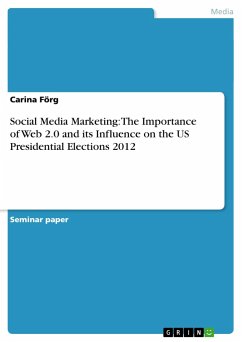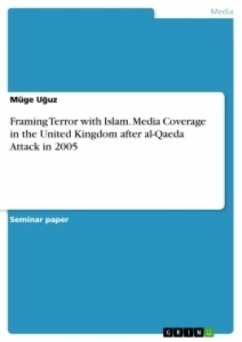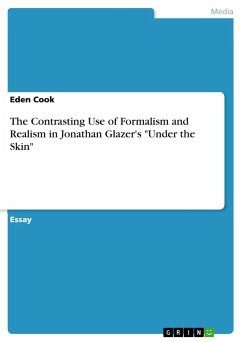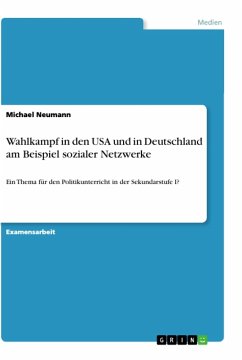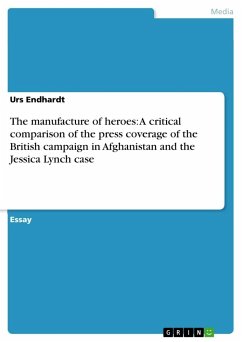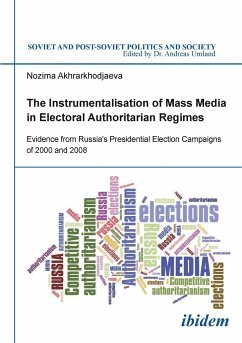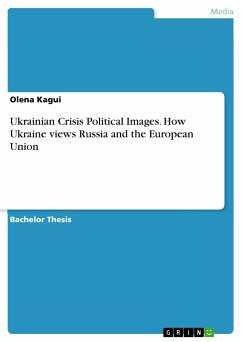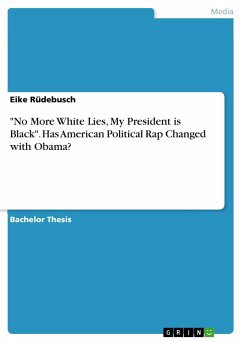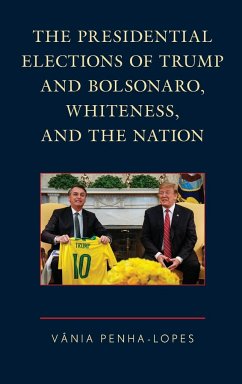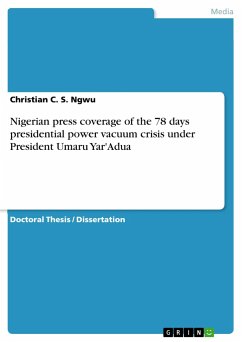
Nigerian press coverage of the 78 days presidential power vacuum crisis under President Umaru Yar'Adua
Versandkostenfrei!
Versandfertig in 1-2 Wochen
52,95 €
inkl. MwSt.

PAYBACK Punkte
0 °P sammeln!
Doctoral Thesis / Dissertation from the year 2014 in the subject Communications - Media and Politics, Politic Communications, grade: B, , course: DEPARTMENT OF MASS COMMUNICATION, language: English, abstract: The Nigerian press has always been accused of manipulating political crisis to the gains of their owners or the opposition. This accusation was repeated during the long 78 days (November 23 2009 - February 9 2010) that Nigerian late President Umaru Musa Yar'Adua was incapacitated due to ill-health. In fact, observers believed that the kind of media war, power play and intrigue that hailed...
Doctoral Thesis / Dissertation from the year 2014 in the subject Communications - Media and Politics, Politic Communications, grade: B, , course: DEPARTMENT OF MASS COMMUNICATION, language: English, abstract: The Nigerian press has always been accused of manipulating political crisis to the gains of their owners or the opposition. This accusation was repeated during the long 78 days (November 23 2009 - February 9 2010) that Nigerian late President Umaru Musa Yar'Adua was incapacitated due to ill-health. In fact, observers believed that the kind of media war, power play and intrigue that hailed the period almost cost Nigeria her hard-earned unity and democracy. Eventually, Yar'Adua and his handlers irrefragably lost to ill-health and public opinion. However, the late President's 'kitchen cabinet' believed that he lost ultimately to public opinion manipulated by the press. How true was this? How far can we agree with the kitchen cabinet bearing in mind that this type of accusation came up during the scandals of President Nixon of the United States and the ill health of late President John Attah-Mills of Ghana. Based on these complexities, the researcher embarked on this study to investigate the kind of coverage newspapers in Nigeria gave the power vacuum crisis during Yar' Adua's tenure in order to establish whether they (newspapers), indeed, manipulated events during those long 78 days. In carrying out this study, four national dailies (The Guardian, The Sun, New Nigerian and Daily Trust Newspapers), were used. Using five units of analysis (news, features, editorials, cartoons and opinion articles) and seven content categories, findings revealed that Nigerian newspapers gave the presidential power vacuum crisis prominence. The results also showed that the issue was adequately covered and took a positive direction. However, it was, also, discovered that Nigerian newspapers frequently covered the power lacuna in their reports which were influenced by regional and ownership factors. Based on these, it was recommended that ownership and regional affiliations should not impact on media reports. And that the media should provide leadership in times of national conflict by setting and consolidating agenda.



